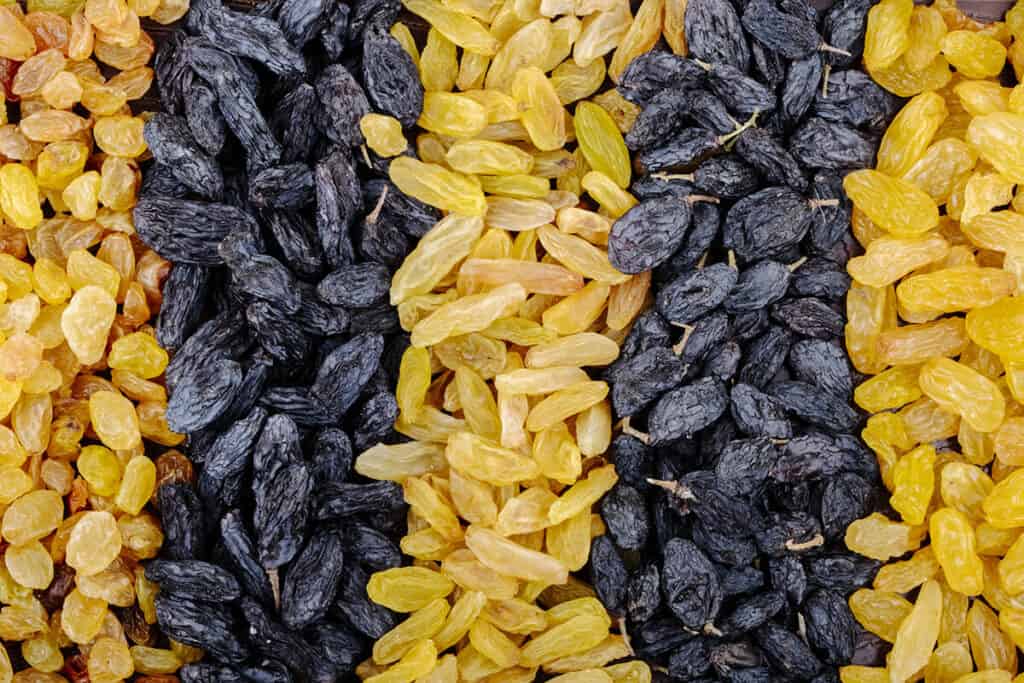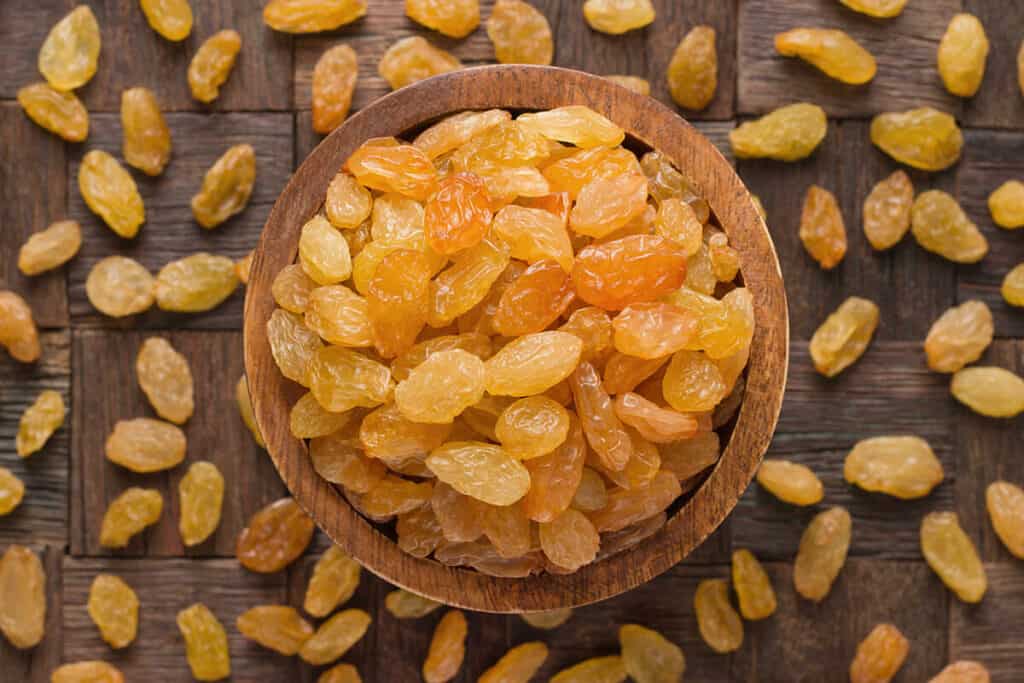It can be difficult for people to come to terms with having a problem with their mental health. Depression, anxiety, and other disorders are on the rise. More and more people are turning to pills to help with their problems, and although they can be helpful, specific changes to one’s diet can also help. This isn’t to say that you shouldn’t listen to your doctor and not take any medications you’ve been described. But certain foods have been shown to help improve mental health. If you’re not on a strict dietary regimen, it won’t hurt to add more of these foods to your daily diet. Keep reading to learn more about foods that can help improve your mental health.

50. Just Dried Grapes
There is no question that grapes are one of the healthiest things you can put into your body, but carrying bags of grapes around is not practical. They can get squished and turn into a goopy mess, and they can also start to wither a way pretty quickly when you take them out of the refrigerator. Raisins are much easier to snack on, as you can carry a box of them around in your purse. What makes them so great for mental health is that they’re rich with the element boron, an essential trace mineral that many people are deficient in.

The inability to pay attention and retain information is a side effect of both anxiety and depression. Boron has been shown to improve concentration and memory by as much as 10%, so it wouldn’t hurt to keep these in your home as a snack. Or you can start adding them to your other foods, such as yogurt or cookies (though you need to be careful about added sugar, as it can wreak havoc on your physical well-being as well as mental health). Raisins are also helpful with keeping your blood pressure down, and they can also help relieve insomnia, something else that people with anxiety and depression tend to struggle with.
